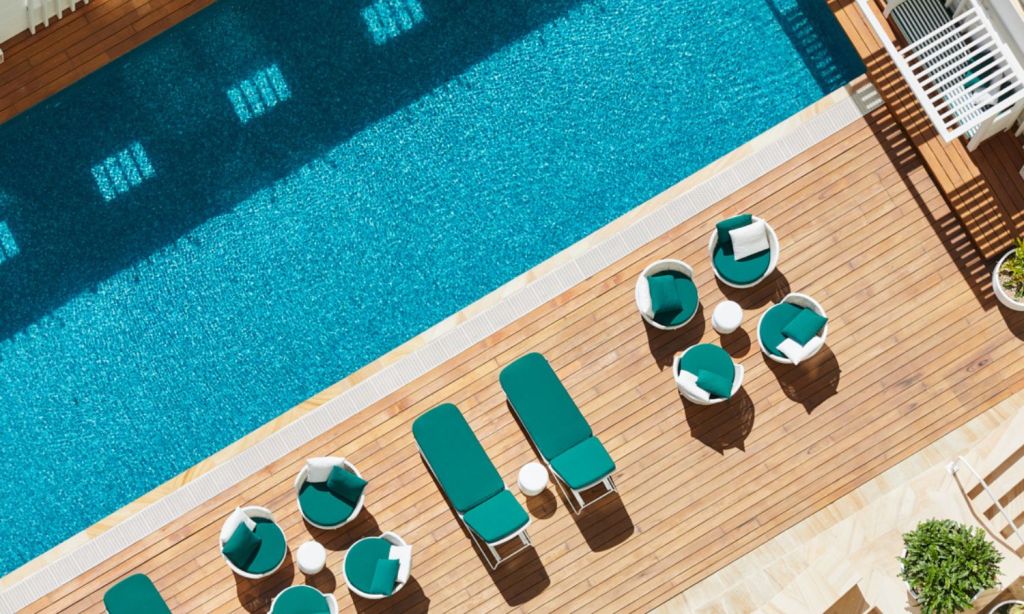“Money never sleeps, and neither do hotels,” Karen Wales, Colliers International Director Hotels, said in 2020.
“It’s a simple fact that eventually every property will need an upgrade, but with the opening of more than 15,000 new rooms over the past three years, existing owners will need to consider expediting the renovation cycle to compete with significant new supply.”
Four years on from these words, the number of refurbished hotels in Australia re-opening under the same brand and name — or, often, with new owners, brands, and names — has steadily increased ever since.
Swissotel Sydney, Novotel Sydney City Centre, Rydges Melbourne, and Amora Brisbane are just a few of the many Australian hotels that underwent refurbishments and renovations and re-opened within the last year.
“Beyond restoring and renovating hotels often being more sustainable and cost-effective than building from scratch, I think [their uptick in Australia] reflects a growing appreciation for preserving cultural and architectural legacies,” says Matthew Talbot, General Manager of Swissotel Sydney.
The CBD hotel underwent a multi-million-dollar refurbishment that included transforming its lobby, hotel bar, and pool deck, all while retaining its heritage building’s 1930s architecture. The hotel reopened at the end of 2023, just in time for guests to take advantage of its new pool deck in the summer.

“I think it is all about respecting the past while meeting the needs of the present,” says Talbot. “Today’s travellers seek to immerse themselves in the cultural history of their destination, and what better way to do this than by staying at a historic hotel itself.”
In addition to refurbished hotels being easier on the planet than knocking down old properties and building anew, many are also incorporating sustainable and more tech-forward features into their offerings. Newly renovated and rebranded Novotel Sydney City Centre reopened in November 2023 with the brand concept of ‘hypothesis’ and a design ethos of not wasting space or time and letting everything flow with the guest.
All bed linen previously used at the hotel was donated to Indigenous communities in the Northern Territory, while old furniture was refurbished or given to women affected by domestic violence.
Lightbulbs are all energy-saving, as are the shower heads. Recycling bins have been put in all rooms. And room service menus aren’t printed and put in rooms, so as not to waste paper — guests can access them via QR codes.
As is the case with many hotels these days, all single-use plastic has also been removed. Instead of bottled water, guests can head to the bar next to the reception and fill a glass with still or sparkling from a tap.
In Melbourne, Rydges Melbourne, formerly the Bryson Centre, housing Hotel Melbourne, underwent a complete transformation, reopening in autumn 2023 as the flagship property for the group. While the heritage-listed property retained its Modernist exterior, its interior and social spaces now capitalise on natural light, which dapples on light timber walls and natural stone floors. Guests can also check in and out via a self-service kiosk, steps from its convenient Exhibition Street entrance.

“All the new supply [of hotels] is not in the best locations because all the best ones are already occupied by existing hotels,” says Norman Arundel, head of hotels at EVT Limited, told The Australian Financial Review.
In Brisbane, $30 million was sunk into refurbishing the Amora Hotel, formerly a Novotel. The new design incorporates elements that require lower maintenance and more natural materials like stone and timber decking, in addition to taking advantage of the hotel’s existing natural light in a bid to reduce energy consumption.
Amora Hotels and Resorts Group General Manager Tom Bloomfield says he thinks the cost-effectiveness of refurbished properties is likely the most important of their advantages.
“Construction costs in Australia remain high, impacting the return required to justify new developments,” he says. “This makes the refurbishment of existing assets more economically sound, as well as a sustainable option that also enables a shorter timeline for return on investment.”
It’s worth noting that alongside this boom in refurbished hotels, there are similar numbers of newly-built hotels opening too. New builds The Star Grand in Brisbane, The Oscar in Brisbane, and St. Regis on the Gold Coast are all set to open within the coming years.
From where we stand now, all signs point to, in a few years, having no shortage of options for places in Australia to stay.
Related: The Latest Travel Trend Takes Its Cue From ‘The Holiday’
Related: One of the Most Talked-About Trends in Wellness Travel? Silent Retreats
Read more stories from The Latch and subscribe to our email newsletter.







